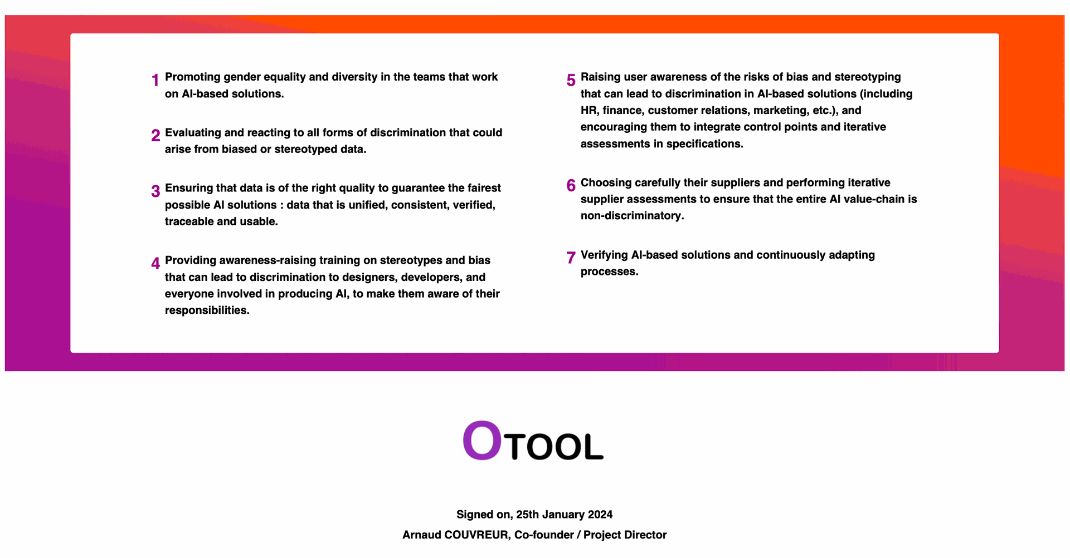Creating Trustworthy Technology for People Together!
International Charter for Inclusive Artificial Intelligence
Artificial Intelligence (AI) Ethics Framework
OTOOL is a signatory of the International Charter for Inclusive Artificial Intelligence
Artificial Intelligence (AI) is a powerful catalyst for advancement and growth in the domains of education, healthcare, the environment, and industry. It also presents an opportunity for mitigating disparities.
Nevertheless, the complete realisation of AI's potential can only be achieved through the responsible and inclusive design, deployment, and operation of AI systems, as its purpose should be to benefit all individuals.
The purpose of the Charter is to establish a comprehensive foundation of trust for all stakeholders involved in the creation and utilisation of AI systems.
The Charter serves as a preliminary measure prior to the formal commitment to the international GEEIS-AI label.
The document acts as a point of reference for both technology developers and AI implementers, ensuring that diversity is upheld and the entire data value chain follows a responsible approach that allows for the identification and control of discriminatory biases.


OTOOL also takes out the Artificial Intelligence (AI) Ethics Framework that guides Australian businesses to responsibly design, develop and implement AI.
It’s part of the Australian Government’s commitment to make Australia a global leader in responsible and inclusive AI. For Australia to realise the immense potential of AI we need to be able to trust it is safe, secure and reliable.
It's a part of OTOOL to respect the principles below:
- Human, societal and environmental well-being: AI systems should benefit individuals, society and the environment.
- Human-centred values: AI systems should respect human rights, diversity, and the autonomy of individuals.
- Fairness: AI systems should be inclusive and accessible, and should not involve or result in unfair discrimination against individuals, communities or groups.
- Privacy protection and security: AI systems should respect and uphold privacy rights and data protection, and ensure the security of data.
- Reliability and safety: AI systems should reliably operate in accordance with their intended purpose.
- Transparency and explainability: There should be transparency and responsible disclosure so people can understand when they are being significantly impacted by AI, and can find out when an AI system is engaging with them.
- Contestability: When an AI system significantly impacts a person, community, group or environment, there should be a timely process to allow people to challenge the use or outcomes of the AI system.
- Accountability: People responsible for the different phases of the AI system lifecycle should be identifiable and accountable for the outcomes of the AI systems, and human oversight of AI systems should be enabled.